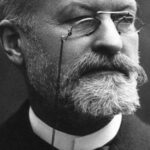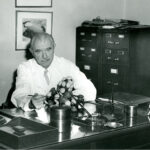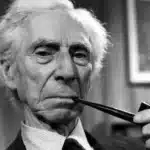August Krogh (15 November 1874 – 13 September 1949) was a Danish professor. In 1920, August Krogh was awarded the Nobel Prize in Physiology or Medicine.
Life and Career
August Krogh was born on 15 November 1874, in Grenaa, Denmark.
He studied medicine at the University of Copenhagen, where he received his medical degree in 1899.
Muscle Physiology: August Krogh’s early research focused on muscle physiology, and he made significant contributions to understanding muscle function and oxygen consumption.
Capillary Physiology: He is most renowned for his work on capillary physiology, particularly the regulation of blood flow and oxygen transfer in capillaries. He introduced the concept of “capillary recruitment” to describe the dynamic control of blood flow in response to tissue demand.
Krogh’s Principle: Krogh’s research led to the formulation of “Krogh’s Principle,” which states that “for such a large number of problems there will be some animal of choice, or a few such animals, on which it can be most conveniently studied.” This principle has been influential in experimental physiology.
August Krogh passed away on 13 September 1949 , in Copenhagen, Denmark.
Award and Legacy
Nobel Prize in Physiology or Medicine: Krogh received the Nobel Prize in Physiology or Medicine in 1920 for his groundbreaking work on capillary physiology.
August Krogh’s research laid the foundation for understanding how blood flow and oxygen transport are regulated in tissues and organs. His work greatly advanced our knowledge of physiological adaptations in response to changing conditions, such as exercise or high altitudes.
His concept of “Krogh’s Principle” remains influential in the field of physiology and has guided researchers in selecting appropriate animal models for various physiological studies.
Krogh’s contributions to the field of physiology have had a lasting impact on our understanding of the fundamental processes that underlie human and animal physiology.
He is remembered as a pioneering physiologist and a Nobel laureate whose work continues to inspire and inform research in the biological and medical sciences.
Tags: August Krogh, August Krogh Birthday, August Krogh Death anniversary, August Krogh Observer Voice, Award for August Krogh, Career of August Krogh, FAQ on August Krogh, Legacy of August Krogh, Life of August Krogh, Observer Voice August Krogh, Tribute to August Krogh











